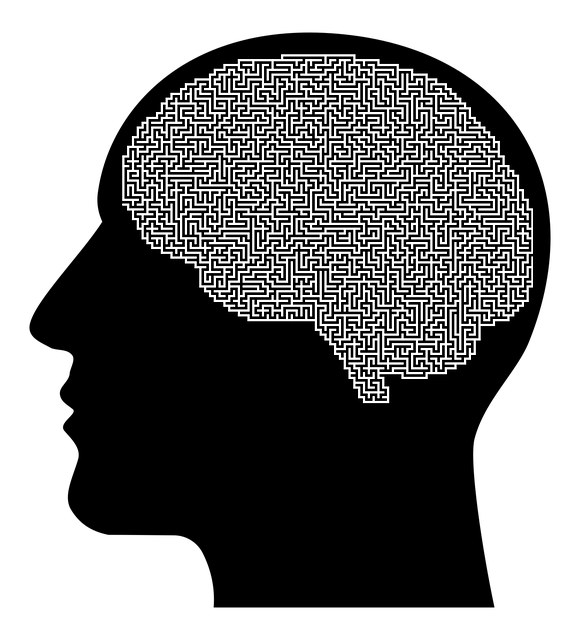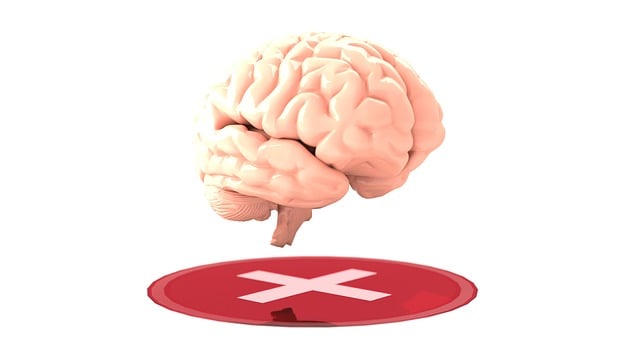In today's diverse world, cultural competency is crucial in healthcare, especially within play therapy offered by Highlands Ranch Play Therapy. Recognizing and respecting patient cultural nuances builds trust and strengthens relationships, ensuring effective care that considers unique communication styles, family dynamics, and health beliefs. This approach reduces professional burnout, fosters inclusive awareness campaigns, and opens discussions about mental wellness. By overcoming cultural barriers using play-based interventions, the program enhances patient care and contributes to a more sustainable, compassionate practice environment. Effective training emphasizes interactive methods like workshops, group discussions, and role-playing exercises, bridging theory and practice in diverse patient populations. Multifaceted evaluation measures the success of these programs by combining qualitative and quantitative methods, ensuring culturally sensitive services that promote resilience among patients.
In today’s diverse healthcare landscape, cultural competency among providers is no longer an option but a necessity. This comprehensive guide explores the critical role of cultural competence in modern medical practice. We delve into the adverse effects of cultural biases and stereotypes on patient care and highlight innovative solutions like Highlands Ranch Play Therapy, offering unique approaches to overcoming cultural barriers. Additionally, we provide practical training strategies and methods for healthcare providers, followed by insights into evaluating the success of cultural competency programs.
- Understanding Cultural Competency in Healthcare: A Necessity in Modern Practice
- The Impact of Cultural Biases and Stereotypes on Patient Care
- Highlands Ranch Play Therapy: A Unique Approach to Addressing Cultural Barriers
- Effective Training Strategies for Healthcare Providers: Engaging and Practical Methods
- Measuring and Evaluating the Success of Cultural Competency Programs
Understanding Cultural Competency in Healthcare: A Necessity in Modern Practice

In today’s diverse and interconnected world, cultural competency within healthcare has become an indispensable aspect of modern practice. Understanding and appreciating the cultural nuances of patients from various backgrounds is no longer a luxury but a necessity. Highlands Ranch Play Therapy recognizes that each individual brings their unique cultural experiences, beliefs, and values to the therapeutic setting. This awareness is crucial for building trust, improving patient-provider relationships, and ensuring effective healthcare delivery.
Cultural competency goes beyond mere sensitivity; it empowers healthcare providers to offer tailored care. By recognizing and respecting cultural differences in communication styles, family dynamics, and health beliefs, therapists can create a safe and inclusive environment. This approach not only prevents burnout among professionals but also fosters public awareness campaigns development and encourages open discussions about mental wellness. Incorporating journaling exercises that focus on personal cultural reflections can further enhance these insights, ultimately benefiting both the therapist and their clients, including those engaging in Highlands Ranch Play Therapy services.
The Impact of Cultural Biases and Stereotypes on Patient Care

Cultural biases and stereotypes can significantly impact patient care, especially in diverse communities like Highlands Ranch. When healthcare providers hold unconscious preconceptions about certain ethnic groups or cultural practices, it can lead to miscommunication, misinterpretation, and ultimately, subpar treatment. For instance, a therapist providing play therapy services might unintentionally perpetuate stereotypes during sessions with children from different backgrounds, affecting the effectiveness of the therapeutic process.
Stereotypes may cause healthcare professionals to assume that patients from specific cultures share similar experiences or behaviors, leading to a one-size-fits-all approach to care. This can be particularly harmful in mental health treatment, such as play therapy or crisis intervention guidance, where cultural context is crucial. For example, what constitutes normal behavioral responses during play sessions might differ across cultures, making it essential for therapists to be aware of these variations and adapt their techniques accordingly to ensure effective depression prevention and public awareness campaigns development.
Highlands Ranch Play Therapy: A Unique Approach to Addressing Cultural Barriers

Highlands Ranch Play Therapy offers a unique and innovative approach to addressing cultural barriers within mental healthcare practices. By incorporating play-based interventions, therapists create a safe and engaging environment for clients from diverse backgrounds to express themselves and explore their emotions. This method is particularly effective in fostering mental wellness and building cultural sensitivity, ensuring that every individual receives tailored care that respects their unique cultural identities.
The program’s focus on play therapy isn’t just a creative strategy; it also serves as an essential tool for preventing burnout among healthcare providers. By engaging in play-based sessions, therapists can reduce stress and enhance their ability to connect with clients from various cultural contexts. This approach not only benefits the patients but also contributes to the overall well-being of mental health professionals, fostering a more sustainable and compassionate practice environment.
Effective Training Strategies for Healthcare Providers: Engaging and Practical Methods

Effective training strategies for healthcare providers should focus on engaging and practical methods that facilitate meaningful learning. One powerful approach is incorporating real-life scenarios and case studies, allowing professionals to apply cultural competency skills in simulated but authentic contexts. This hands-on learning helps bridge the gap between theory and practice, ensuring providers can navigate diverse patient populations with sensitivity and confidence.
Additionally, interactive workshops, group discussions, and role-playing exercises promote active participation and peer-to-peer learning. These activities encourage critical thinking and foster a deeper understanding of different cultural perspectives. By integrating these engaging methods, healthcare provider training becomes dynamic and impactful, ultimately enhancing patient care in diverse communities—even in specialized areas like Highlands Ranch Play Therapy. Encouraging positive thinking and inner strength development through continuous education equips professionals to deliver culturally sensitive care while addressing the needs of an increasingly diverse patient base.
Measuring and Evaluating the Success of Cultural Competency Programs

Measuring the success of cultural competency training programs is an essential step in ensuring their effectiveness and long-term impact. This process involves a comprehensive evaluation that goes beyond simple satisfaction surveys. By integrating qualitative and quantitative methods, healthcare providers can gain deep insights into the program’s benefits. Observational techniques, for instance, allow trainers to assess changes in interaction styles, communication patterns, and patient engagement over time. These observations are further complemented by structured interviews, providing valuable narratives from participants about their experiences and perceived improvements.
In the context of Highlands Ranch Play Therapy, a successful cultural competency program would be reflected in improved patient outcomes and enhanced therapeutic relationships. Mental Wellness Coaching Programs and Compassion Cultivation Practices can lead to better coping skills development, fostering more resilient individuals. Evaluations should also consider the integration of diverse perspectives within the therapy setting, ensuring that all patients feel heard and understood, regardless of their cultural backgrounds. This holistic evaluation approach enables continuous improvement, aligning with the ultimate goal of providing culturally sensitive and effective therapy services in a dynamic healthcare landscape.
Cultural competency training is no longer a nice-to-have, but an essential component of modern healthcare. By addressing biases and stereotypes through innovative approaches like Highlands Ranch Play Therapy, and implementing effective training strategies, healthcare providers can significantly enhance patient care. Measuring the success of these programs ensures continuous improvement and fosters more inclusive, equitable, and compassionate health services.














